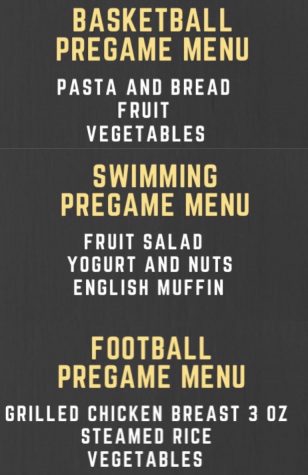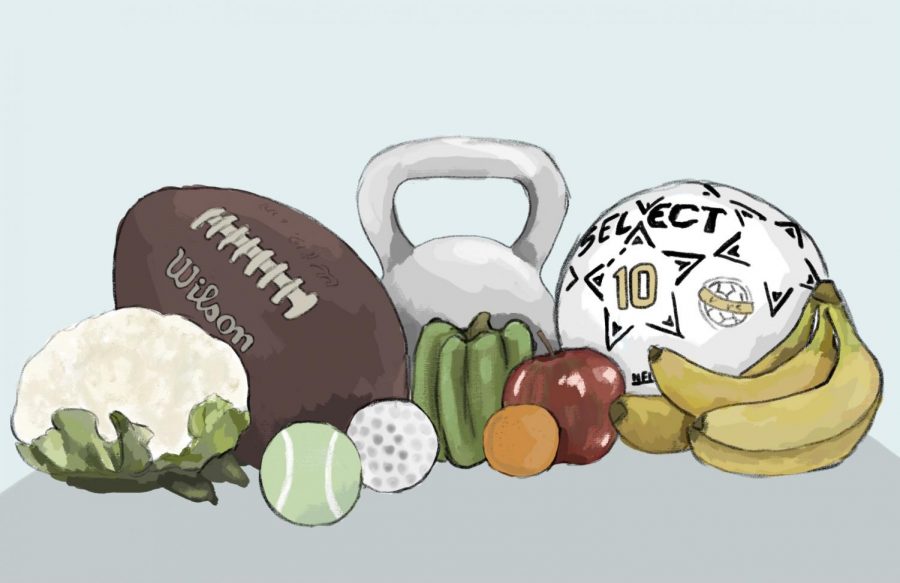The Missing Link
Fueling for peak performance gives athletes a competitive edge.
Healthy food choices directly correlate to positive sports performance.
Student athletes naturally expend more energy than the average student and therefore need more nutrition to fuel them on and off the field. Moreover, specifically for student athletes, schedules become extremely busy, and the time for fitting in a healthy, nutritious meal is difficult and causes their performance to suffer. Just as a pre-game meal is important, post game meals are just as vital in order for athletes to recover properly.
Athletes need nutrient-dense foods (food that is high in nutrients but relatively low in calories), but because they are usually pressed for time, they tend to snack on unhealthy alternatives. Oftentimes, unbeknownst to them, what they perceive to be healthy choices, such as granola bars or fruit juice, do not provide the nutrients they need because they are high in sugar.

Although it may not be the first choice of a student athlete, they should “stack up on healthy snacks [such as] fruit, pre-cut carrot and celery sticks, hummus and pita bread strips, cherry tomatoes and cheese squares, hard-boiled eggs, or Greek yogurt,” said The Juice Plus Company.
These foods are highly nutrient-dense and will nutritionally sustain an athlete better than goldfish, cheez-its, chips, or any other quick grab-and-go items found at most cafeterias or gas stations. The body needs vitamins and minerals, also known as micronutrients, that are found in these nutrient-dense foods in order to produce a physical advantage.
The missing link for most athletes surprisingly comes from their nutritional habits, as it has been proven that athletic success and nutrition go hand-in-hand. As a result, many collegiate and professional athletes have dieticians working with them to perfect their diet, a testament to its importance.
Every type of athlete is going to need different meal plans based on a variety of different variables. However, the common thread between them all is the need for an appropriate amount of calories, carbohydrates, protein, fluids, vitamins and minerals, depending on their body type.
Additionally, athletes need to be conscious of the possible consequences that could arise if they do not follow proper guidelines when it comes to their eating habits. When nutrition is not prioritized, athletes may be more susceptible to weakened immune systems, longer recovery from workouts, decreased mental focus, injury, and many more.




